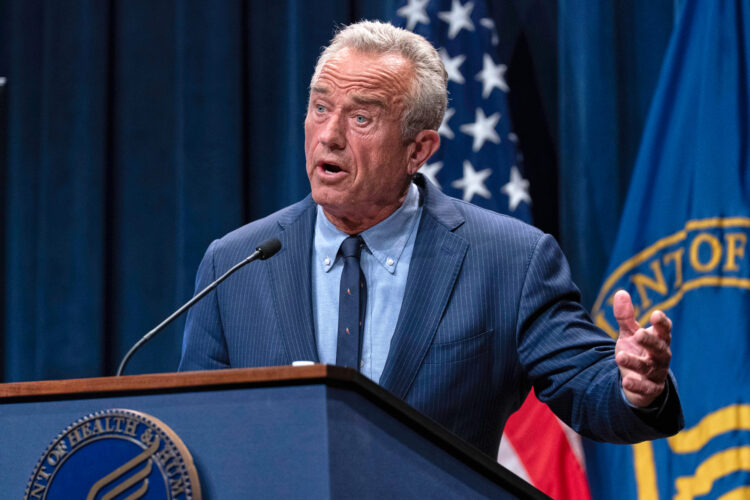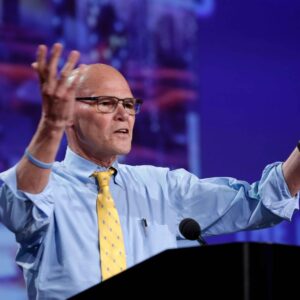Health and Human Services Secretary Robert F. Kennedy Jr. announced on Wednesday that he is launching a sweeping federal initiative aimed at identifying the environmental causes behind the rising rates of autism in American children. The announcement follows recent data from the Centers for Disease Control and Prevention (CDC) indicating that autism diagnoses have increased from 1 in 36 to 1 in 31 children—a trend Kennedy described as an “epidemic” that demands urgent investigation.
Speaking at a Cabinet meeting with President Donald Trump and later at a press conference, Kennedy argued that the dramatic rise in autism rates cannot be explained by improved diagnostics, broader awareness, or genetics alone. Instead, he pointed to environmental toxins—including chemicals in food, water, air, and medicines—as likely culprits, citing what he called a pattern of “epidemic denial” by health authorities and mainstream media.
“This is a preventable disease,” RFK said. “We know it’s environmental exposure. It has to be. Genes do not cause epidemics. It can provide a vulnerability, but you need an environmental toxin.”
“We’re going to announce a series of new studies to identify precisely what the environmental toxins are that are causing it,” Kennedy added. “This has not been done before. And we’re going to do it in a thorough and comprehensive way, and we’re gonna get back with an answer to the American people very, very quickly.”
RFK JR: "We're going to announce a series of new studies to identify precisely what the environment toxins are that are causing [autism]. This has not been done before…"pic.twitter.com/rOzWHkd5KU
— Breaking911 (@Breaking911) April 16, 2025
Learn more about the all-new VT News and subscribe today!
Kennedy, a longtime critic of vaccines, dismissed the CDC’s position that broader diagnostic criteria and greater awareness are the primary drivers of increased autism prevalence. He also questioned long-standing research dismissing a link between vaccines and autism, though his current initiative is more broadly focused on environmental exposures such as pesticides, mold, and even ultrasound scans.
The new initiative, expected to begin in the coming weeks, will involve hundreds of scientists and research teams. Kennedy pledged to fund grants for academic institutions and researchers, with a goal of releasing preliminary findings by September. Specific details about the research design and methodologies, however, remain unclear.
Dr. Walter Zahorodny, a co-author of the CDC’s autism reports, appeared alongside Kennedy and echoed concerns that environmental factors may be contributing to the rise. Yet many public health experts and autism advocacy groups have expressed alarm over Kennedy’s rhetoric and approach, warning that it may reignite public distrust in science and stigmatize autistic individuals.
The Autism Society of America criticized Kennedy’s remarks, calling them “harmful, misleading, and unrealistic.”
“Autism is a complex developmental disability shaped by genetic, biological, and environmental factors,” the organization said. “It is neither a chronic illness nor a contagion, that qualifies harmful language like ‘epidemic,’ and to do so is both inaccurate and stigmatizing.”
Connor Walcott is the lead writer for Valuetainment.com. Follow Connor on X and look for him on VT’s “The Unusual Suspects.”
Got a hot scoop or an idea for a story? Connect with the VT writers on Minnect!



















Add comment